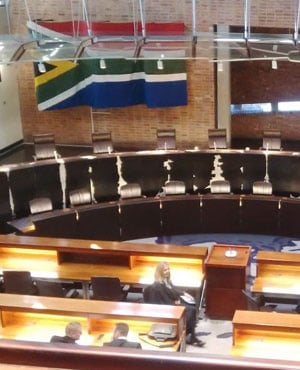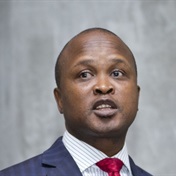
One of the glaring problems that concerns Africa is the phenomenon of state failure.
State failure occurs when the rule of law collapses and government loses legitimacy to make decisions and have its citizens obey those decisions.
As someone who participates in discussions about such issues, including writing academic papers on the subjects, I am worried that this phenomenon of state failure is constantly coming to mind when one discusses strengths of democracy in South Africa. In most cases, citizens tend to deny the reality of state failure until such point that it is obvious that it has happened and very little can be done to remedy the situation.
African countries such as Nigeria, Kenya, and also Senegal have experienced state failure. State failure does not take place abruptly, it creeps in slowly to a point where the entire state machinery is covered with this problem, just like waking up to a fog. South Africa is increasingly gathering characteristics of state failure and denial does not help us.
Last week we saw the courts delivering two unrelated decisions that raise concerns about the conduct of government. One decision involves the appointment of Hawks boss Berning Ntlemeza; that his appointment is illegal, null and void.
Another decisions involves the controversial Sassa where the court yielded to government‘s relentless efforts to continue with a contract that is illegal. In both cases, government has not only perpetuated illegality, but it is also set on defending its conduct and seeks to continue with such illegality.
Of course we can count on the courts to defend the rule of law. However, the courts are almost reaching that point of fatigue. When the highest court in the land is given a false choice to either stop an illegal contract or allow it to continue because its immediate termination would harm the poor and vulnerable, then we have a crisis. This shows that our judiciary is reaching that point of fatigue.
Those who argue that all this instances show the strengths of our democracy should be mindful of the fact that the courts cannot hold on their own. Of all the three arms of government (i.e. the judiciary, the executive, and Parliament), it is only the judiciary that seems to be doing the right thing.
Even worse is the reality that Parliament and the executive are ganging up in perpetuating the collapse of the rule of law. This means that the judiciary is pitted against two arms of government. The reality is that the judiciary will not hold that long.
Adding to the growing concerns is when the executive fails to protect the judiciary, and allows for physical intimidation of the judiciary as we have seen with the recent break in at the office of the chief justice which has seen the theft of computers.
This took place less than 72 hours after the courts delivered two separate judgements in which the executive’s conducts were questioned.
You can think I’m exaggerating to talk about the gradual setting in on state failure, but take a trip to Nigeria and they will tell you how they moved from hope to complete cynicism regarding their democracy.
Nations usually deny that they are confronted with the reality of state failure because every nation thinks it is exceptional and things like state failure do not apply to them, until they say it was inevitable.
When the executive is hell bent of defending illegality, we risk the situation where some important responsibilities that should be exercised by government end up being place under control of the courts and other institutions because government is failing to discharge its responsibility.
The reality is that Sassa is being placed under a caretaker arrangement where the minister now has to report to the court periodically on what she’s up to, just like the accused on bail. This creates unnecessary tensions as the court is forced to babysit government.
It is the functioning of democracy that the courts have to rule on the conducts of government when asked to do so as our democracy is brought to test. Some ways of testing democracy however, should be avoided and be seen as a last resort, instead of becoming the order of things.
- Ralph Mathekga is an independent political analyst and author of the book When Zuma Goes. He writes a weekly column for News24.
Disclaimer: News24 encourages freedom of speech and the expression of diverse views. The views of columnists published on News24 are therefore their own and do not necessarily represent the views of News24.




 Publications
Publications
 Partners
Partners























